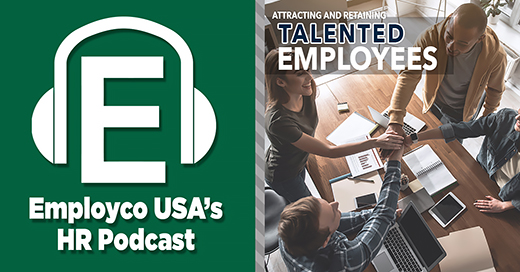H.R. expert explains why the corporate opinion on criminal backgrounds is changing, and what it means for employers
 A recent survey of Illinois employers found that companies are more open to hiring those with a criminal past than ever before.
A recent survey of Illinois employers found that companies are more open to hiring those with a criminal past than ever before.
Additionally, many states are changing previous regulations which prevented convicted criminals from working in certain fields.
“In Illinois, for example, lawmakers have made 100 occupations newly available for those with a criminal background, such as jobs in real estate and accounting,” says Rob Wilson, President of Employco USA, a national employment-solutions firm. “With these legal stipulations out of the way, many employers are looking at such candidates in a new light.”
But, is it wise for employers to take such a risk?
“When it comes to criminal backgrounds, you really have to be judicious in considering what the offense was, how long ago the crime occurred, as well as what position you are hiring the candidate for,” says Wilson. “Clearly, hiring someone with a string of drug offenses to work in a pharmacy environment or veterinary clinic could be problematic, but alternately, a person in recovery could thrive in other positions such as customer service or data entry.”
Wilson says that there is no guarantees when hiring an employee, even those without a criminal background.
“It’s easy to assume that just because a person has a criminal background, they should be avoided or looked at suspiciously, but if the crimes were in the past and they have paid their debt to society, then it is possible to consider that these people may be excellent candidates for employment,” says Wilson. “Yet proceed with caution, we recommend all employers conduct a criminal background screen prior to hiring an employee – and, make sure you are well-versed in what the crime was and what that could mean for your company.”
For more on this topic, please contact Rob Wilson at rwilson@thewilsoncompanies.com.
 “Artificial intelligence is driven by algorithms — sets of rules based in part on historical data that computers use to guide decisions. For example, if history shows that employees possessing specific traits have proven successful in a given job role, AI algorithms rank highly applicants with those same attributes.
“Artificial intelligence is driven by algorithms — sets of rules based in part on historical data that computers use to guide decisions. For example, if history shows that employees possessing specific traits have proven successful in a given job role, AI algorithms rank highly applicants with those same attributes.
 A Pew study recently revealed that the number of teens with summer jobs has been on a steady decline for the last 2 decades. While almost half of American teenagers used to spend their summers scooping ice cream, slinging burgers, or working at the mall, now only around one-third of teens will spend their summer months employed.
A Pew study recently revealed that the number of teens with summer jobs has been on a steady decline for the last 2 decades. While almost half of American teenagers used to spend their summers scooping ice cream, slinging burgers, or working at the mall, now only around one-third of teens will spend their summer months employed. The interview process is always nerve-wracking for job hunters, but now instead of facing a hiring manager, applicants might find themselves dealing with artificial intelligence agents before finally meeting a real person from their desired firm.
The interview process is always nerve-wracking for job hunters, but now instead of facing a hiring manager, applicants might find themselves dealing with artificial intelligence agents before finally meeting a real person from their desired firm. Last week the House Oversight and Reform Committee passed a bill which would effectively “ban the box” that would keep federal agencies and contractors from asking potential employees’ about their past criminal history, until after these applicants had been offered a conditional employment offer.
Last week the House Oversight and Reform Committee passed a bill which would effectively “ban the box” that would keep federal agencies and contractors from asking potential employees’ about their past criminal history, until after these applicants had been offered a conditional employment offer. Millennials often get criticized for having an ‘entitled’ attitude, and this appears to hold true in the workplace as well.
Millennials often get criticized for having an ‘entitled’ attitude, and this appears to hold true in the workplace as well.  A new study found that over 20 percent of people quit their new positions within the first 6 weeks of joining a company. Furthermore, the new research from Robert Half found that 93 percent of new employees consider leaving their jobs before the end of their probationary period.
A new study found that over 20 percent of people quit their new positions within the first 6 weeks of joining a company. Furthermore, the new research from Robert Half found that 93 percent of new employees consider leaving their jobs before the end of their probationary period. As the job market improves, so too does employers’ risk of losing employees. It is estimated that around 60 percent of employees are either actively or passively searching for a new job, or they are being approached by other companies who want to ‘poach’ them for their own team.
As the job market improves, so too does employers’ risk of losing employees. It is estimated that around 60 percent of employees are either actively or passively searching for a new job, or they are being approached by other companies who want to ‘poach’ them for their own team.
 A
A  As the economy strengthens and jobs’ numbers improve, employees now have more options and bargaining power than in recent memory. However,
As the economy strengthens and jobs’ numbers improve, employees now have more options and bargaining power than in recent memory. However,